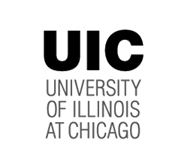Evaluating the Safety and Efficacy of Anti-Influenza Intravenous Hyperimmune Immunoglobulin (IVIG) in Adults Hospitalized With Influenza
| Status: | Recruiting |
|---|---|
| Conditions: | Influenza |
| Therapuetic Areas: | Immunology / Infectious Diseases |
| Healthy: | No |
| Age Range: | 18 - Any |
| Updated: | 2/3/2019 |
| Start Date: | January 2015 |
| End Date: | June 2019 |
Anti-Influenza Hyperimmune Intravenous Immunoglobulin Clinical Outcome Study (INSIGHT 006: FLU-IVIG)
Influenza (the flu) is a common illness that usually occurs in autumn and winter. The flu is
usually mild, but can cause serious illness or death. The purpose of this study is to test
the safety and effectiveness of an antibody against the flu (called intravenous hyperimmune
immunoglobulin or IVIG) in people who are hospitalized for severe flu.
usually mild, but can cause serious illness or death. The purpose of this study is to test
the safety and effectiveness of an antibody against the flu (called intravenous hyperimmune
immunoglobulin or IVIG) in people who are hospitalized for severe flu.
Influenza is responsible for thousands of hospitalizations and deaths each year in the United
States and worldwide. One possible new treatment for the flu involves the use of IVIG, a
blood product containing antibodies from people who have recovered from the flu or who have
had a flu shot. The purpose of this study is to evaluate whether IVIG can reduce the severity
and duration of flu in people who are hospitalized with the flu.
The study will enroll participants 18 years and older who are hospitalized with the flu. The
study will enroll participants over one or more flu seasons. Regardless of the date of
enrollment, each participant will be in the study for about 28 days.
At study entry (Day 0), participants will be randomly assigned to one of two groups (Arms A
and B). Participants in both groups will receive standard of care (SOC) treatment for the
flu, but those in Arm A will also receive one dose of IVIG and those in Arm B will receive a
placebo for IVIG. Both IVIG and placebo will be given intravenously over at least 2 hours.
On Day 0, before receiving IVIG or placebo, participants will undergo a symptoms assessment,
blood collection, and a nasopharyngeal (NP) swab to collect a sample of secretions from the
nose and throat.
Additional study visits will occur on Days 1, 2, 3, 7, 14, and 28. Depending on the visit,
participants may take part in the same study procedures that took place on Day 0. On Days 2,
14, and 28, visits for participants who are no longer hospitalized may be conducted over the
phone.
States and worldwide. One possible new treatment for the flu involves the use of IVIG, a
blood product containing antibodies from people who have recovered from the flu or who have
had a flu shot. The purpose of this study is to evaluate whether IVIG can reduce the severity
and duration of flu in people who are hospitalized with the flu.
The study will enroll participants 18 years and older who are hospitalized with the flu. The
study will enroll participants over one or more flu seasons. Regardless of the date of
enrollment, each participant will be in the study for about 28 days.
At study entry (Day 0), participants will be randomly assigned to one of two groups (Arms A
and B). Participants in both groups will receive standard of care (SOC) treatment for the
flu, but those in Arm A will also receive one dose of IVIG and those in Arm B will receive a
placebo for IVIG. Both IVIG and placebo will be given intravenously over at least 2 hours.
On Day 0, before receiving IVIG or placebo, participants will undergo a symptoms assessment,
blood collection, and a nasopharyngeal (NP) swab to collect a sample of secretions from the
nose and throat.
Additional study visits will occur on Days 1, 2, 3, 7, 14, and 28. Depending on the visit,
participants may take part in the same study procedures that took place on Day 0. On Days 2,
14, and 28, visits for participants who are no longer hospitalized may be conducted over the
phone.
Inclusion Criteria:
- Signed informed consent
- Locally determined positive influenza test (by polymerase chain reaction [PCR] or
other nucleic acid test, or by rapid antigen [Ag]) from a specimen obtained within 2
days prior to randomization
- Onset of illness no more than 7 days before randomization, defined as when the
participant first experienced at least one respiratory symptom or fever
- Hospitalized (or in observation unit) for influenza, with anticipated hospitalization
for more than 24 hours. Criteria for hospitalization will be up to the individual
treating clinician.
- For women of child-bearing potential: willingness to abstain from sexual intercourse
or use at least one form of hormonal or barrier contraception through Day 28 of the
study
- Willingness to have blood and respiratory samples obtained and stored
- NEW score greater than or equal to 2 at screening (see the protocol for more
information on this criterion)
Exclusion Criteria:
- Women who are pregnant or breast-feeding
- Strong clinical evidence (in the judgment of the site investigator) that the etiology
of illness is primarily bacterial in origin
- Prior treatment with any investigational drug therapy within 30 days prior to
screening
- History of allergic reaction to blood or plasma products (as judged by the site
investigator)
- Known immunoglobulin A (IgA) deficiency
- A pre-existing condition or use of a medication that, in the opinion of the site
investigator, may place the participant at a substantially increased risk of
thrombosis (e.g., cryoglobulinemia, severe refractory hypertriglyceridemia, or
clinically significant monoclonal gammopathy)
- Presence of any pre-existing illness that, in the opinion of the site investigator,
would place the participant at an unreasonably increased risk through participation in
this study
- Participants who, in the judgment of the site investigator, will be unlikely to comply
with the requirements of this protocol
- Medical conditions for which receipt of a 500 mL volume of intravenous fluid may be
dangerous to the participant (e.g., decompensated congestive heart failure)
- Receiving extracorporeal membrane oxygenation (ECMO)
- Suspicion that infection is due to an influenza strain or subtype other than
A(H1N1)pdm09, H3N2, or influenza B (e.g., H5N1, H7N9)
We found this trial at
18
sites
Click here to add this to my saved trials
3550 Jerome Avenue
Bronx, New York 10467
Bronx, New York 10467
(718) 920-4321

Phone: 718-920-6494
Montefiore Medical Center As the academic medical center and University Hospital for Albert Einstein College...
Click here to add this to my saved trials
Duke University Younger than most other prestigious U.S. research universities, Duke University consistently ranks among...
Click here to add this to my saved trials
4200 Fifth Ave
Pittsburgh, Pennsylvania 15260
Pittsburgh, Pennsylvania 15260
(412) 624-4141

Phone: 412-624-8209
University of Pittsburgh The University of Pittsburgh is a state-related research university, founded as the...
Click here to add this to my saved trials
9000 Rockville Pike
Bethesda, Maryland 20892
Bethesda, Maryland 20892
301-496-2563

Phone: 301-496-8029
National Institutes of Health Clinical Center The National Institutes of Health (NIH) Clinical Center in...
Click here to add this to my saved trials
1 Cooper Plaza
Camden, New Jersey 08103
Camden, New Jersey 08103
(856) 342-2000

Phone: 856-757-7843
Cooper University Hospital Cooper University Health Care, the clinical campus of Cooper Medical School of...
Click here to add this to my saved trials
1200 West Harrison Stree
Chicago, Illinois 60607
Chicago, Illinois 60607
(312) 996-4350

Phone: 312-996-6763
Univ of Illinois A major research university in the heart of one of the world's...
Click here to add this to my saved trials
Case Western Reserve Univ Continually ranked among America's best colleges, Case Western Reserve University has...
Click here to add this to my saved trials
Click here to add this to my saved trials
2201 Inwood Rd
Dallas, Texas 75235
Dallas, Texas 75235
(214) 645-8300

Phone: 214-590-2686
U.T. Southwestern Medical Center The story of UT Southwestern Medical Center is one of commitment...
Click here to add this to my saved trials
Miami Valley Hospital Miami Valley Hospital (MVH) is passionate about providing the most recent medical...
Click here to add this to my saved trials
Click here to add this to my saved trials
Henry Ford Hospital Founded in 1915 by auto pioneer Henry Ford and now one of...
Click here to add this to my saved trials
West Virginia University West Virginia University, founded in 1867, has a long and rich history...
Click here to add this to my saved trials
Click here to add this to my saved trials
Click here to add this to my saved trials
Click here to add this to my saved trials
Click here to add this to my saved trials




